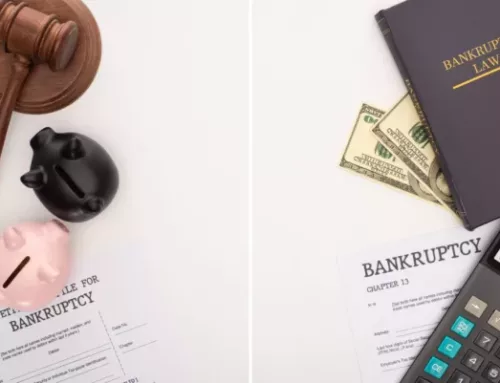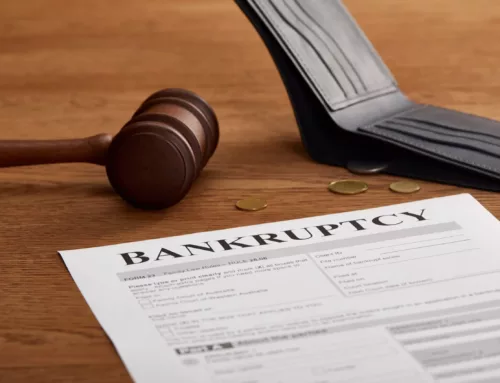Are You Struggling with Car Payments? Filing Bankruptcy Might Be a Solution.
Facing car loan delinquency can be stressful. If you’re late on car payments and want to avoid repossession, you might want to consider bankruptcy. Can you keep your car if you file for bankruptcy in Mississippi? Yes, you can.
Bankruptcy is a legal process that helps people and businesses struggling with debt to start anew. Bankruptcy is not a sign of personal failure. Instead, it’s a way to help deal with huge financial problems. There are various kinds of bankruptcy. The most common ones for individuals are Chapter 7 and Chapter 13.
In Chapter 7 bankruptcy, some of your assets might be sold to pay debts. You can keep some assets of a specific value with exemptions. Chapter 13 bankruptcy lets you make a payment plan to pay off debts in three to five years. If you stick to the plan, you can keep your property.
Understanding these basics is crucial when considering the fate of your car in bankruptcy.
Quick Summary:
- Bankruptcy is a legal process under federal law that helps people and companies handle a lot of debt. It offers options to repay part or all the debt or eliminate some to achieve a fresh financial start.
- The bankruptcy process in Mississippi follows federal bankruptcy laws, with Mississippi’s specific rules determining asset protection through exemptions.
- Bankruptcy exemptions protect essential assets like homes and cars, allowing for a financial restart.
- Chapter 13 bankruptcy can protect against car repossession through the “automatic stay” upon filing. It also enables catching up on missed payments, helps restructure loans, and may lower the amount owed on car loans.
- Bankruptcy exemptions in Mississippi help protect your home, a set amount of any asset, and your personal belongings. Other exemptions may apply to insurance benefits and retirement accounts.
- When filing for bankruptcy in Mississippi, you give up control of your assets to the court. A trustee manages payments to creditors.
- Filing for bankruptcy in Mississippi has some steps before and after filing. Before filing, you must get credit counseling and check if you pass the means test. Gather your documents and file a petition with the court. After filing, you will deal with an automatic stay, meet creditors, and confirm a plan.
What is Bankruptcy?
Bankruptcy is a legal process established by the federal government to help people and businesses with too much debt. It lets you start anew by giving you choices to repay some or all of what you owe or have a part of the debt canceled.
Here are some key terms to understand the bankruptcy process:
- Bankruptcy Code: Bankruptcy laws in the U.S., found in Title 11 of the Federal Code, explain how bankruptcy works.
- Bankruptcy Court: There’s a special court for bankruptcy cases within the district court system. A bankruptcy judge oversees these cases.
- Bankruptcy Petition: When starting bankruptcy proceedings, you must submit a bankruptcy petition form. Different forms are used based on whether you file alone or as a business.
- The term “Bankruptcy Estate” includes all your belongings when filing for bankruptcy. Assets like cars, homes, accounts, and retirement savings can be included in bankruptcy.
- The Bankruptcy Administrator oversees plans and fees and ensures a smooth bankruptcy process.
How Does Bankruptcy Work in Mississippi?
During bankruptcy, federal law applies. Mississippi has specific rules on what you can keep during this process. This exemption lets you keep necessary items such as your car or home and helps you start fresh financially.
Here’s a closer look at the key points:
- Federal bankruptcy law dictates how you can file for bankruptcy.
- Mississippi Exemptions: In Mississippi, laws protect certain assets from being sold to pay creditors.
By using these protections wisely, bankruptcy can give you a fresh financial start, allowing you to keep and avoid repossession of your car.
How Chapter 13 Bankruptcy Can Help Me Keep My Car?
Filing for Chapter 13 bankruptcy can help you keep your car, even if you have other debts. Here are the reasons why:
Protection from Repossession
Filing Chapter 13 brings “automatic stay,” stopping creditors from repossessing your car. That gives you time to create a doable payment plan with your car loan.
Catching Up on Missed Payments
You can catch up on late car payments and keep up with your ongoing car loan payments in Chapter 13. That helps you stay on track with your car loan to prevent repossession. You can get back on track with your car loan and avoid missing payments that might lead to losing your car.
Restructuring Car Loan
Chapter 13 can help lower what you owe, the interest rates, and your monthly payments for your car loan.
Lowering Interest Rates
Chapter 13 can help lower your car loan payments. Even if you are up to date on payments, you can reduce what you owe and get a lower interest rate through Chapter 13.
Principal Reduction (Cram Down)
If your car is worth less than your loan amount, you may be able to lower the loan to match the car’s value. That lets you lower the loan to the car’s market value.
What are the Bankruptcy Exemptions in Mississippi?
Bankruptcy rules in Mississippi decide which belongings people can keep when declaring bankruptcy. These rules help debtors shield specific assets from being sold to pay creditors. Individuals filing for bankruptcy in Mississippi can pick either state or federal exemptions. Mississippi’s bankruptcy exemptions include:
Homestead Exemption
Up to $75,000 of equity in a home on under 160 acres. You can also protect $30,000 of equity in a mobile home on land you own. The exemption is automatic, so you don’t have to submit a separate form.
Wildcard Exemption (For Filers Over 70)
$50,000 of any property you choose.
Other Exemptions:
- Motor vehicles can use a $10,000 wildcard exemption.
- Personal Property exemption up to $10,000 worth.
- Insurance Benefits include life and disability benefits. Homeowners’ insurance proceeds too.
- Retirement Accounts are exempt under Mississippi law. That includes individual retirement accounts (IRAs) and Keoghs. Federal law shields certain retirement accounts like 401(k)s, 403(b)s, and profit-sharing plans.
- Public Benefits: It also safeguards public assistance programs, workers’ compensation, and unemployment benefits. Crime victim compensation benefits are included as well.
What Happens When You File Bankruptcy in Mississippi?
When you file bankruptcy, the court takes control of your debts and assets not exempt in Mississippi. A bankruptcy trustee will be appointed to your case by the court. The trustee’s job is to see your creditors are paid as much as possible.
To further understand the bankruptcy process, specifically focusing on Chapters 7 and 13. Here’s a step-by-step guide on filing for bankruptcy in Mississippi:
Pre-filing
- Credit Counseling: Complete a credit counseling course within six months before filing.
- Means Test: Analyze your income and expenses to determine eligibility for Chapter 7 (based on median income) or Chapter 13.
Gathering Documents
- Collect documents related to income, expenses, debts, assets, and property ownership.
- Collect tax returns (two years for Chapter 7, four years for Chapter 13).
- Gather proof of income, bank statements, and investment statements for the past 6 months.
- Obtain government ID, Social Security Card, and copies of loan statements (mortgage, car).
- Prepare a household property list with values and copies of credit reports.
- If applicable, collect business financial statements, liability insurance policies, and valuations of assets.
Filing the Petition:
- Determine exempt property under Mississippi exemptions.
- File a petition with supporting schedules and financial statements at the Mississippi bankruptcy court in your district. Submit to Northern or Southern court. Websites for both districts are provided with instructions and downloadable forms.
Post-Filing Process
- Automatic Stay: Filing bankruptcy triggers an automatic stay, preventing creditors from contacting you or seizing your car or your property.
- Bankruptcy Trustee: The court appoints a trustee to oversee your case, review your paperwork, and potentially challenge exemptions.
- Meeting of Creditors: Attend a meeting (usually brief) with the trustee and any creditors who appear. Objections to your case are typically resolved here.
- Chapter 13 Repayment Plan (if applicable):
- Develop a plan proposing how you’ll distribute your income to pay creditors over three to five years.
- The plan must meet specific requirements, including paying priority debts in full and unsecured debts at least as much as they would receive in a Chapter 7 case.
Discharge (Chapter 7) or Plan Confirmation (Chapter 13)
Chapter 7
- If there are no challenges within 60 days, you receive a discharge order eliminating most debts. Any non-exempt property might be sold by the trustee to pay creditors.
- Mississippi offers a “motor vehicle exemption” allowing you to keep your car up to a certain value. You can keep the car if its equity (value minus loan/liens) is less than the exemption limit. If equity exceeds the limit, the car might be sold, with the option to buy it back.
Chapter 13
Your repayment plan is confirmed by a judge. Completing the plan successfully discharges the remaining balance of your debts.
Remember, Mississippi bankruptcy exemptions allow you to protect certain assets like your car from repossession. You can always use this to your advantage, provided that you follow the stipulated rules and guidelines on the Mississippi bankruptcy process.
Discover How Can You Keep Your Car If You File Bankruptcy
Facing car repossession? Wondering if you can keep your car if you file for bankruptcy? This question worries many. Uncertainty about this can be a lot but don’t worry, clear answers are close by.
At The Rollins Law Firm, we help clients with legal matters such as bankruptcy. We know the details of the law and how each person’s situation is different. If you’re wondering if you can keep your car if you file bankruptcy, our team of bankruptcy attorneys can help you with that. You can rely on our knowledge for the answers you need.
Our skilled lawyers carefully review your situation. They look at things like the bankruptcy type you choose, how much your car is worth, and the rules in Mississippi state. We tailor our guidance to protect your assets as we help you navigate bankruptcy law.
Ready to take control of your financial situation? Contact our team at The Rollins Law Firm today and schedule a free consultation. Let us help you understand bankruptcy confidently and peacefully. Don’t delay; your brighter financial future starts now.








Connect with Us